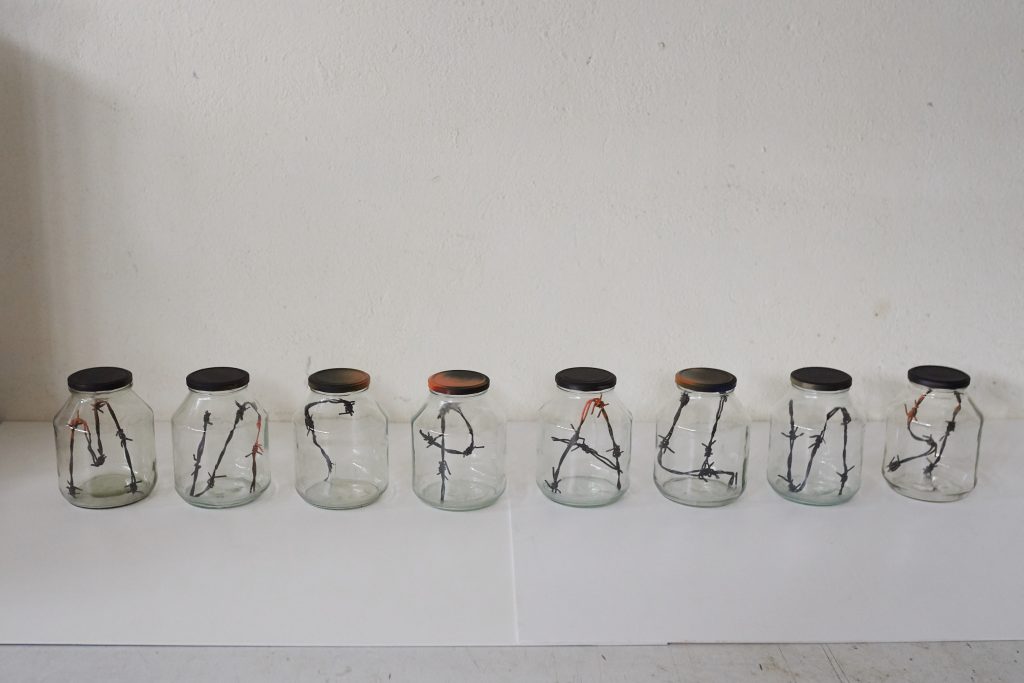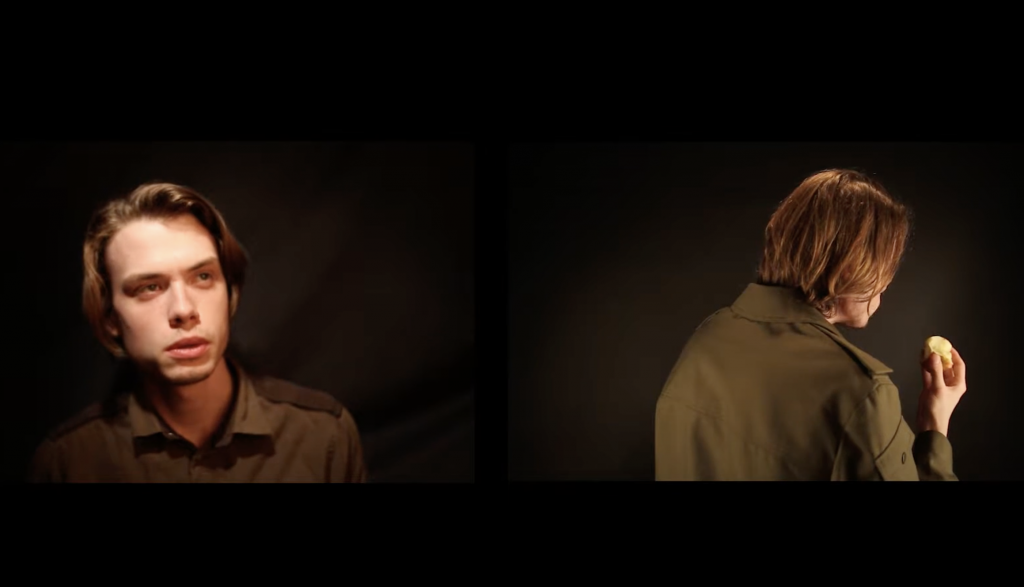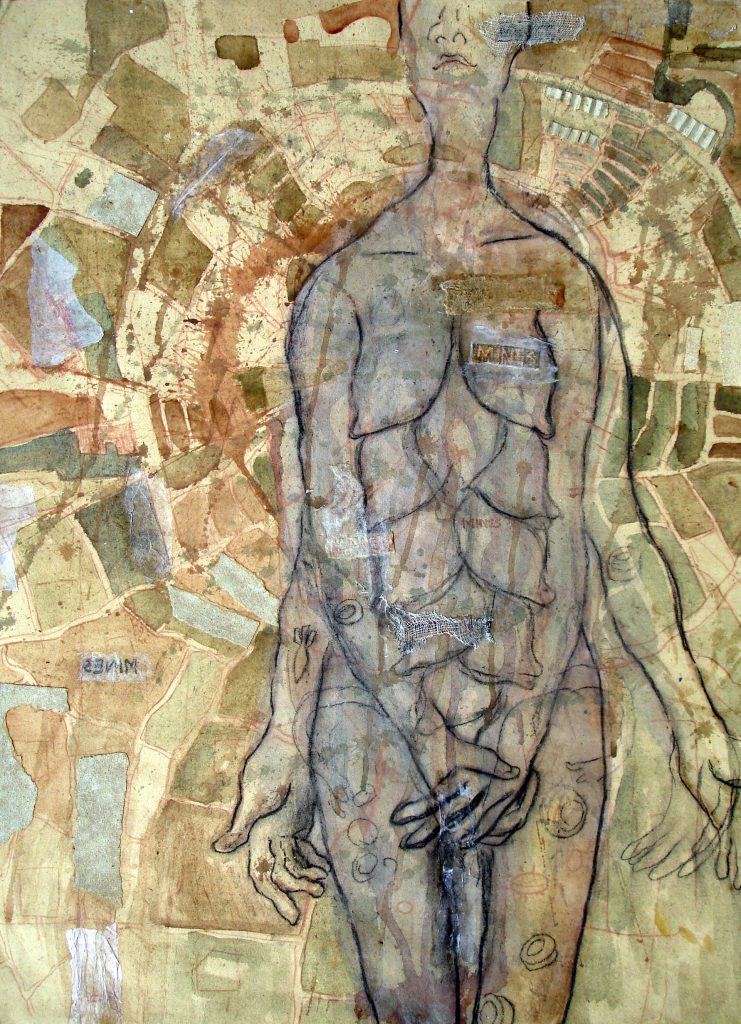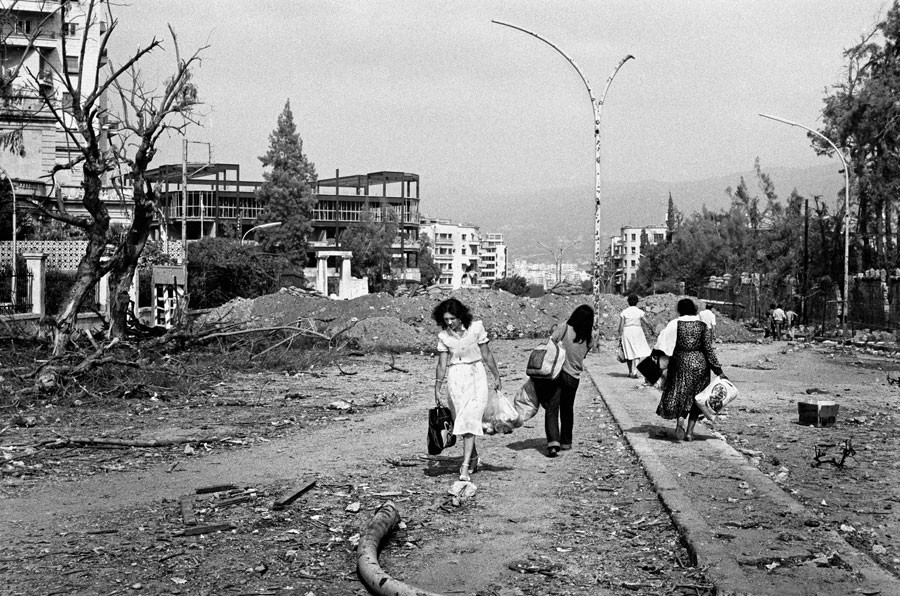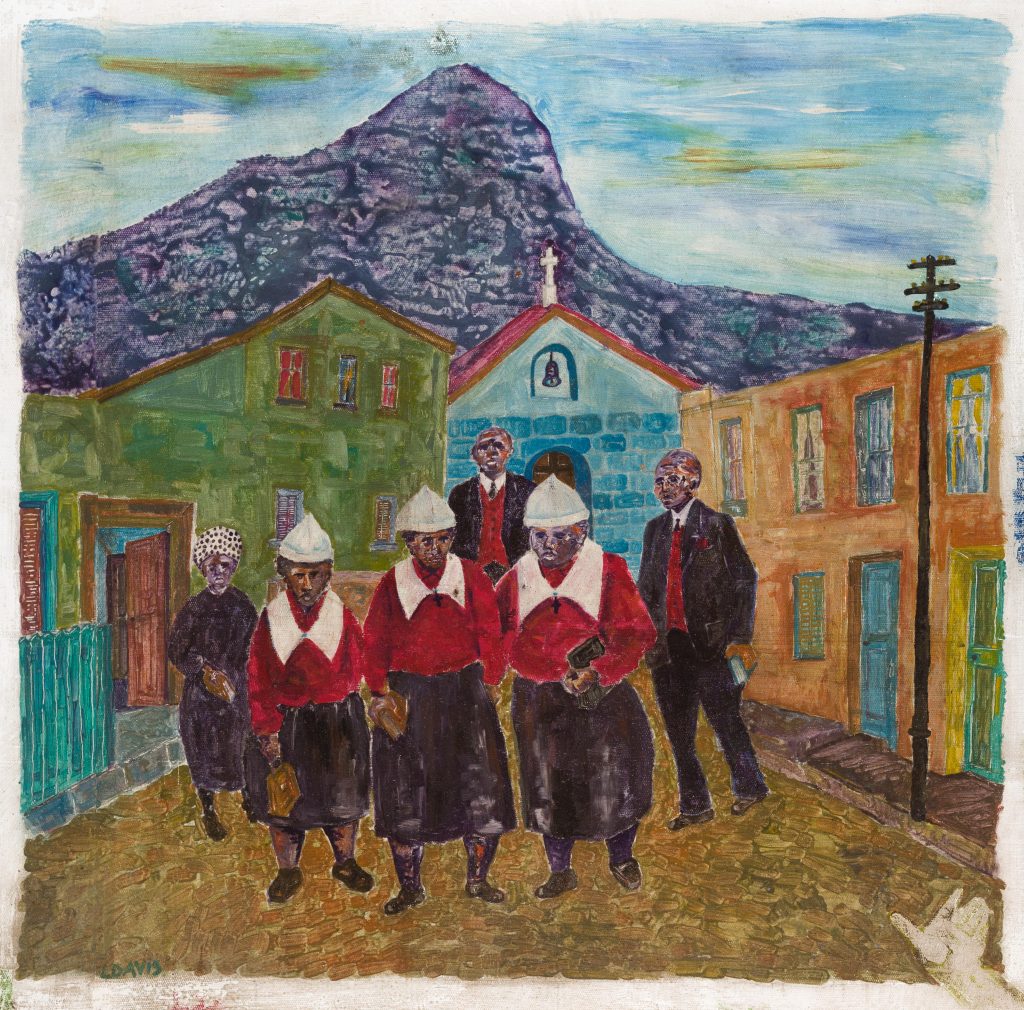Conservation of the Migration

Dimensions: 18x160x20 cm
In the words of the artist:
Migration is a natural process that cannot be stopped, only controlled, redirected, regulated. We should not forget, despite all fears, that it involves people who have their story. Conservation of a product can stop its destruction for a certain period of time. The attempts to encapsulate the movement of people between the different countries seems to be similar. The question remains about the consequences of every decision and action of each politician and of each of us…
Description:
The globalization of international migration flows over the past few years have triggered a very complex and dynamic political and social debate on the issues of migration. The immigration reform in the USA that led to large-scale protests and discussions on the criminalization of illegal migration; the riots in France in October 2005 and the heated polemics regarding the discrimination and integration of immigrants are subjects touching not only upon the economic necessity of liberalization of immigration regimes but also upon the political pressure to impose restrictions on migration.
Sigmunt Bauman says that ”Massive migration is by no means a novel phenomenon; it accompanied the modern era from its very beginning (though time and again modifying, and occasionally reversing, its directions) – as our “modern way of life” includes the production of “redundant people” (locally “inutile” – excessive and unemployable – owing to economic progress, or locally intolerable – rejected in the effect of unrest, conflicts and strife caused by social/political transformations and subsequent power struggles). ”
Analyses have shown that two approaches to the management of migration have emerged as a result of the attempts to defend these mutually exclusive interests.
The first approach – called a “force” approach – is tightly related to highly debated issues such as irregular migration, cross-border crime and global terrorism. This approach has led to measures that often border on violation of legal rights and indirect discrimination in the migration process.
The second approach – for regulation of migration – deals with the understanding of migration as a problem of protection of legal rights and requires implementation of measures preventing the violation of migrants’ rights by improving the mechanisms of their defence.
